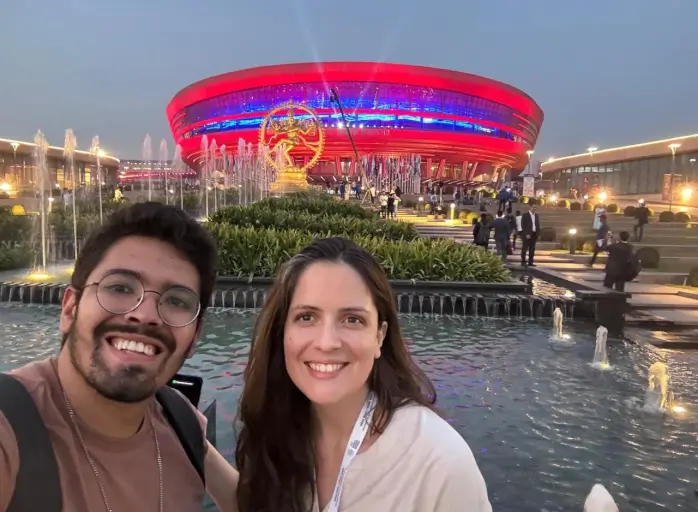

A promising career path for women in HPC
Three panellists with different HPC profiles discuss why a career in supercomputing can be an interesting choice for women.
 Startup Luxembourg
Startup Luxembourg
Three panellists with different HPC profiles discuss why a career in supercomputing can be an interesting choice for women.
Having a career in high performance computing (HPC), also known as supercomputing, is not entirely new but is evolving due to advancements in technology and the growing demand for computational power across various sectors. As HPC applications evolve, professionals skilled in computational science, data management and several other domain-specific areas will be increasingly in demand. At the same time, the world of HPC also extends towards areas like customer relationship, project management, marketing and HR, for instance.
However, women only make up about 17% of the global HPC workforce. The 2024 Supercomputing Day explored several applications of HPC and put a spotlight on the alarming low rates of women in the field, and shared ideas that could help increase the numbers.
The following panellists, also pursuing careers in HPC, shared their views:
- Anna Lührs: Coordinator at the Forschungszentrum Jülich and part of the management board of the Jülich Network of Women in HPC (JuWinHPC).
- Silvana Belegu: Student of the EUMaster4HPC at the University of Luxembourg.
- Diem Bui: Senior Solution Engineer at LuxProvide.
Diversity is a necessity. What are the benefits you see in having more diverse sectors?
Silvana Belegu: There are several studies that prove that gender-balanced teams are more productive. We’ve seen that problem solving requires different perspectives, and from a psychological point of view, we know that women and men tend to have different perspectives on problem solving. A gender-balanced team means that you can have all perspectives and tend to solve issues much more efficiently. Job offers, especially in the computing fields, now mention that they welcome applications from all genders.
HPC is both a specific and interdisciplinary field. Does that bring any specific challenges or benefits?
Anna Lührs: It can be a challenge in the sense that there is not one imminent obvious path to get into HPC, unless you take one of the very few master programmes in the field. So it is quite hard to attract people who would be perfectly skilled. It's not like in pharmacology, when you study in the field and then work in the pharma industry or in a pharmacy. There are many paths into HPC, but there are also many alternatives around it to consider, and that can sometimes be challenging.
Women have different perspectives, even in their daily life. So I think they can use that to their benefit in their professions in these fields.” - Silvana Belegu
Silvana Belegu: I think it offers a good opportunity to work with people from different backgrounds, including those in research, neuroscience, medicine, finance or other fields. I see it as a good opportunity and not a challenge.
In your opinion, what can all of us do, regardless of gender, so that women feel empowered to enter the HPC field?
Silvana Belegu: I’m already a student, so I tell my friends that this is a really cool subject to study. Women especially are often a bit scared that it is too difficult, so I always start by telling them that if men can do it, then of course, we can do even better.
Also, HPC is a field that involves resource management and a lot of problem-solving skills where women can offer their unique perspectives. Women have different perspectives, even in their daily life. So I think they can use that to their benefit in HPC. It is also a field where you can work from everywhere, so you don't have to always be on site. This is also an advantage for work-life balance.
There are many paths into HPC, but there are also many alternatives around it.” - Anna Lührs
Diem Bui: Someone once said: If you want to change the world, start with yourself. In order to do that, you have to truly believe you can do that. You should make yourself feel empowered before trying to encourage people to follow. Family support is also very important, and companies ought to customise the working environment and policy to support diversity.
If you want to change the world, start with yourself. In order to do that, you have to truly believe you can do that.” - Diem BUI
Anna Lührs: We also need to talk about the next generation. When I was in school, I had a physics teacher who told me I couldn’t do physics and should stop taking that subject as soon as I could, although I had better marks than most of the boys. In our society, we have to stop to have “girls subjects” and “boys subjects” because everyone can do everything. We may not be able to change society, but we can be good examples so that we break the stereotypes. I think HPC is very diverse in many aspects. In our institute, we have people from probably every continent in the world but only very few women.


